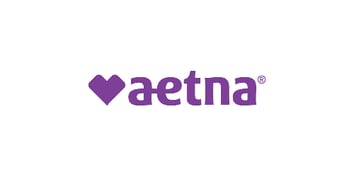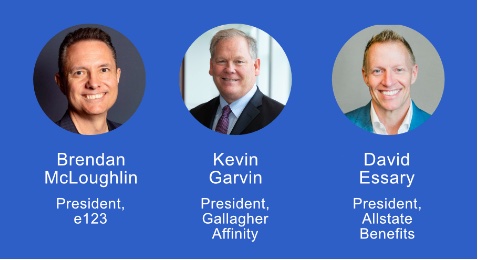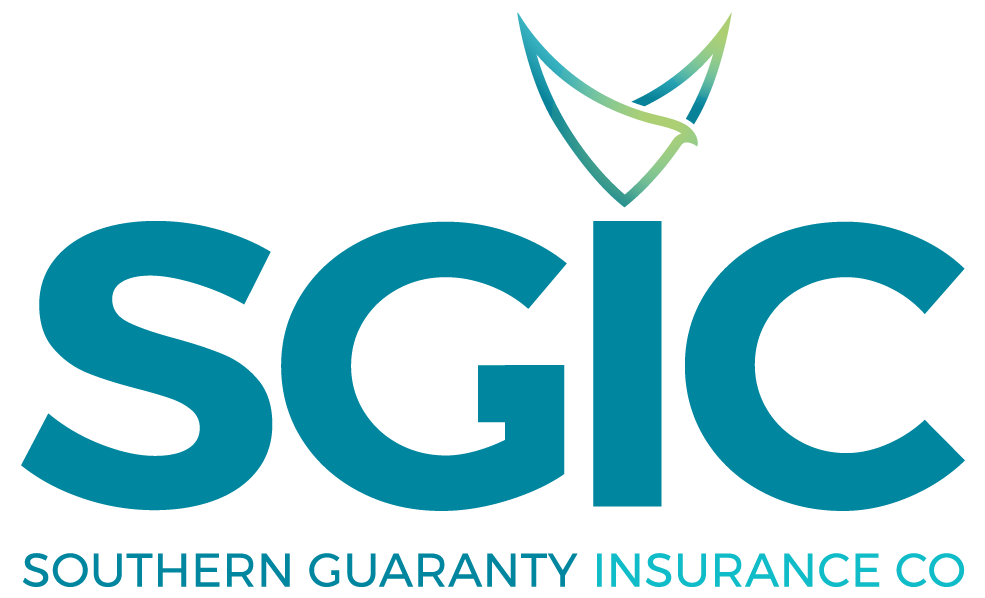The importance of digital transformation in insurance distribution with Prasanna Nathan of Aetna
 e123 Team
·
11 minute read
e123 Team
·
11 minute read
Prasanna Nathan, Digital Delivery and Innovation Leader at Aetna, discusses the importance of customer focus, digital transformation, and collaboration. Prasanna focuses on how FMOs need better reporting tools, but a one-size-fits-all solution doesn’t work, so FMOs and Carriers need to partner with technology firms to enable customized solutions, this week on Insurance Innovation with Alan Edgin.

You’ll hear about reporting tools, digital innovation, agent appetite for digital tools and the importance of cross-selling
Insurance Innovation, brought to you by e123 - the premiere life and health distribution management system.
Episode Transcript:
Narrator
Welcome to e123’s Insurance Innovation podcast, where you'll hear tips, tricks and techniques for improving sales, improving profits and achieving operational excellence. Each episode features an executive guest with a perspective to share, an interesting story and great examples for you to think about. Please give us feedback on the show or talk to us about your distribution management system needs on our website at e123insurtech.com. And now, here's our host, Alan Edgin.
Alan
Welcome to the Do's and Don'ts, a mini-series that builds on best practices for insurance marketers, carriers and marketing organizations based on white papers from leading thinkers on the future of the insurance distribution. I had a chance to sit down with Prasanna Nathan from Aetna after a panel session at a recent conference where we were discussing the white paper. Prasanna, thank you for joining us. Can you just share a few moments with me about you, your background?
Prasanna
So I've been in the health insurance industry for 20-odd years now, always on the carrier side, on the health insurance side. My passion is with digital technology - building tools, technology for our brokers, for our members, for our internal consumers, right. For our workflow systems and users and all of that. That's where my passion is. So I partner with a lot of agents, our internal user sales teams to know what their needs are and kind of build tools that are customized for them. I'm not a big fan of buying something off the shelf and saying “fit it in”. I like to get customized solutions to our team.
So that's kind of been my passion being here with Aetna for the last eleven years now and in the Nashville/Franklin area. So that's my background.
Alan
So are you by training a programmer, are you more operations analytics?
Prasanna
So I started off as a developer. Okay, I go back to the mainframe days but I started off as a mainframe developer but very soon I was more passionate working with the business, trying to understand what their needs are. So the advantage that I have is knowing the technology and understanding the business and doing a happy marriage between the two. So I've always been the go between guy between the business and the technical teams. So the business will share what they want and the technical teams will try to get the information from me and build it. So that's kind of been successful for us.
Alan
Yeah. And that's kind of, to me, as a secret sauce in being able to understand programming and the logic, but also being able to relate to what the distribution, what the needs of your clients are. And your clients are typically the agents and the distribution channels and then the agents.
Prasanna
Yeah, I think that's one of the advantages of being where I have been. My sales team, Ty and Steve and everyone, they have taken me along. A lot of these kinds of conferences where I got to sit down with the actual agents, agency leaders, and understand their needs. And I've been to call centers, I've been to agency offices, sit down with them and see what they do on a day to day basis. So that's where being able to understand what their needs are helps us build solutions that cater to their needs.Alan
What are two or three of the biggest needs that you see now from your distribution?
Prasanna
I think from an FMO side, what they need is reporting. Right. And reporting is kind of a never ending story. You get three things down on reporting. You want the fourth thing, you want the fifth thing. So that's the biggest need that I see is on the reporting side. And that's where the FMOs (field marketing organizations) need to spend more time trying to partner with teams like you who can build those solutions, customized solutions for them.
We from the carrier side can provide the data because we have the data and we are the ones who can provide it. But it's on the FMOs partnering with technology firms to build out those reportings. Because that's where they know what they want. They just don't have a portal that they can get it from and they are looking at us and we have tens, twenties [of FMOs] to cater to and we cannot customize it for everyone. So that's the challenge that we see.
Alan
Yeah, I've been in distribution most of my career, and it seems like a lot of FMOs. I am. Those agencies, they take the path of least resistance and they don't embrace technology like they should and is if they just embraced it and understood what it can benefit them, how they can learn about persistency, how they can learn about where to sell the product, where it's most attractive, how to retain the clients. And they're kicking and screaming when you try to bring them to that deal. I agree totally.
Prasanna
And mainly no two FMOS want the same thing, right? Because each of them are looking at it from the different side of the client. So no two FMOs want the same thing. So when as a carrier, it becomes a challenge to provide them what they are looking for because how many FMOs are we going to cater to? So that's where them owning it is more important.
Alan
Yeah, I agree totally. Let me do a quote here. One of the analyst quotes that was discussed in the session was large, well capitalized digital insurgents are disrupting incumbent payers and providers in their most profitable strategic areas. Entrenched players are investing in digital superficially, neglecting key opportunities. What keeps current insurance players from deep digital innovation?
Prasanna
I think it's a combination of stuff. It's not being closer to the needs. Right. So I'll go back to what I said earlier. One of the things is we take pride in being able to partner up more closely with the agencies and all of that in learning what they need. Not every carrier is doing it. So their development team, the technology team, are sitting in their own offices and coming up with these ideas, thinking that the agencies are going to like it, they're going to use it.
Prasanna
That never really works. So when it hits the market, it just doesn't work because they just don't know what their actual needs are. So the key thing for any carrier, for that matter, or any company for that matter, is go to where your customers don't expect them to tell you everything. Go and spend a day with your customer, sit down with them and see what their challenges are so that you can cater to their needs and build technologies that really work for them. I think I'll take an example of one we built in 2017. So it's been about five years now, our enrollment tool. Last year, we crossed 2 million submissions on that one.
We couldn't have done that if not for the voice of the agents. We continuously heard them go to their offices, sit down with them. There's a different model for telesales. There's a different model for the street agents, see what works for them and partner with them and make it easy for them to complete a sale. And that's kind of the key thing. So spending time with the consumer there, with the customer there, listening to them is very important.
Alan
It's a totally collaborative effort. Yeah, you've got, you know, the eight, you know, and, and Aetna, your company, is a great company, and they listen to their distribution, to their clients, and they say, hey, how can we make our mousetrap a little better? What do we need to tweak here? What do we need to do there? And you respond to it and it's reflective and obviously the production.
Prasanna
Exactly. I think we've had amazing growth in the last three years. And that's kind of all of all of that goes back to how we partner up, both from a product perspective as well as from a technology perspective. How do we partner up with the agencies, how do we partner up with the agents and make sure that it's easy for them to do business with us?
Alan
Let me give you another quote here. Let me read this. So this is from a McKinsey study, and it says, agent appetite for digital tools has never been greater. Our May survey on U.S. agents during the crisis found that 44% of agents rate either agent digital tools or customer tools as the number one capability insurers can invest in to support them right now. So how do you think about those tools for different distribution partners? So you've got multiple different distributions. How are they different? Do you have to kind of cater to that distribution based upon its needs and then do another one?
Prasanna
That's where what we call the plug-and-play solution comes into play. Very early in our journey, we kind of realized no one solution is going to satisfy everyone. So when we built our solutions, we built it in what we call a plug-and-play model. So while we have our own tools, our websites, our enrollment tools and all of that, we also partner with companies like you [e123] so that you can connect and submit their enrollments, agency information and all of that. So we need to make sure that we don't have a one stop shop for everyone. It doesn't really work. So making sure that you build as a carrier, we build our solutions that are easy to integrate with technology firms like you is what is critical there.
Right. So I think that's how I look at it and say absolutely. I think COVID has changed a lot of industries, including ours and agents and the members, to be honest, have got more technology savvy and they are seeing that in their day to day life and they are demanding that even in the insurance industry and they're like, why not? The banking industry is doing it, the retail industry is doing it, why not insurance? And rightfully, we need to be stepping up our game to make sure that we cater to their needs and provide solutions that are meaningful for them that are, if not better, on par with the rest of the other industries. So I think that's where I look at it.
Alan
I'm glad to hear that you guys are listening to differences because they're not all not an all one size fits all scenario. You get different wants, different needs, different metrics they have to work by. And the fact that you do that just probably enhances obviously your production and your productivity.
Prasanna
Exactly.
Alan
What's the most important gap in digital tools for agents and downlines? From your perspective, what's missing? What do you need?
Prasanna
I think again they need to be thinking a year down the line. They shouldn't be thinking about today. So they need to understand that technology, digital solutions take time to build. So they cannot say I want it yesterday. That's never really going to work. So plan ahead. I think that's what I would say is plan your needs ahead.
So if you want something in ‘24, talk about it now. Don't wait for ‘24 to come and then you talk about it. So that's kind of the key thing is planning ahead from an agents and agencies perspective and being communicated right. Convey that to their carriers. The bigger the FMO, the bigger their value with the carrier. They can pull it off. Right.
They can influence what the carrier is doing. But they need to make sure that they understand that carriers have their own challenges and you give them the time. Don't expect them to deliver it in weeks. It is going to take months. Be prepared for it. But plan ahead. I think that's a key thing.
Plan ahead.
Alan
Yeah I like that. So earlier in the panel discussion you were very excited about the idea of providing more usable data. To partners to help improve their selling process and generate a higher LTV. Longtime lifetime value. Yes. What data is out there that can help agents now? What are some of the metrics?
Prasanna
So I think there's a lot of information from a data perspective. I love data. Right. Not only from a health insurance perspective, but even from a day to day perspective on different things. I love data. And data can really tell stories. You just need to take the time to dig deeper and look at it.
Be it your persistency rate, be it your persistency rate based on zip code or a product. Looking at it from that perspective, why is some product getting more sold? Whether it's the others? Spend time on that one. Yes, we cannot share claims data. But we can say meaningful claims data is there.
So you can find out what's working and what's not working from that perspective. So I think spend the time in understanding the data, spending the time in saying what's working and what's not working. Where is it? Sticky. Right. The whole thing about it's not about selling. It's about making sure that it stays on the books.
There is a stat that it takes three times to get a new member versus keeping an existing member. Right. So make sure that you're not just going about new sales. Sale. Sale. Spend time on your existing block and see how you can make sure that you're retaining their value. Going back to the LTV.
You get the LTV only if they stay on the block. Otherwise you don't get it. Right. So taking the time to dig deeper on that one? It could be. They were unhappy with something, right?
They want to lapse it. Reach out to them. Find out why they want to lapse it. Carriers can tell you when somebody is calling to say they're trying to cancel the policy. There's a 35, 40 days window there that you can actually go and make sure that you save the sale. So spend the time to do that one because it is a value both for yourself as an agency, FMO also for the carrier for the long term relationship. I think that's kind of the key there.
As soon as the FMOs and carriers identify that, that will be the potential one. We do have things like we do what we call notifications, right? Alerts and notifications. So we send out alerts, notifications saying this member called to say that they want to cancel - what can you do? - kind of a thing. Take action on it. Make sure to reach out to the customer and say what's the problem?
Why do you want to cancel it? With the kind of marketing that's happening on TV and everything, people don't know why they are leaving. So reach out to them and ask them what's happening, how can I help you? Maybe you can sell one more product there. So I think those are the things that I would say as an FMO agency that you really again step up and may own it for the long term value.
Alan
I can't remember who said it in the panel discussion. If it was you, if it was another panelist. But they said that after they sell it the first year, they're still a prospect. It's not until they renew and buy that second year that they're a client. Correct. And so what you guys are doing by the notifications and the communication is keeping your face in front of them and saying, hey, if you have any questions, if you have any other makes perfect sense to me.
Prasanna
And most of the carriers and the agencies, they are not… they don't have one product, they have multiple products. So make sure you cross-sell. More products you sell to the consumer, they are going to stay more. So bundle it up. In the Medicare world, you have the Med Supp (Medicare Supplement) along with the dental or the Med Supp along with the cancer, heartache and stroke with the final expense. So you have a variety of products.
Bundle it up, make sure it's more of a needs analysis with the consumer so that you're bundling every opportunity. You talk to them, try to see how you can know their needs and cater to those needs.
Alan
I started my career with MetLife a long, long time ago and they told us early on that if you can get two or more products sold to that client, the persistency goes way up. Definitely. And it does that.
Prasanna
Definitely.
Alan
So hey, thanks for the panel discussion today. Thanks for stopping by and chatting with us for a few minutes.
Prasanna
Absolutely.
Alan
You have a wealth of knowledge and you're a good asset to not only Aetna but to the insurance industry. So thank you for coming, stopping by.
Prasanna
Thank you. I appreciate the opportunity, it was fun. Thank you.
Narrator
Thanks for listening to this week's episode of Insurance Innovation, brought to you by e123. We hope you enjoyed the show. Please provide feedback and let us know topics that would inspire you on the website at e123insurtech.com, home of the premier life and health insurance distribution management system.
If you'd like to be featured as a guest or tell us about someone you'd like to hear us interview, please reach out. We'll see you next time.




